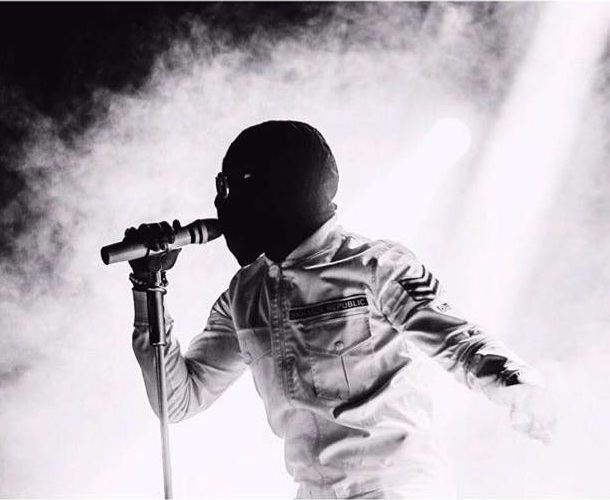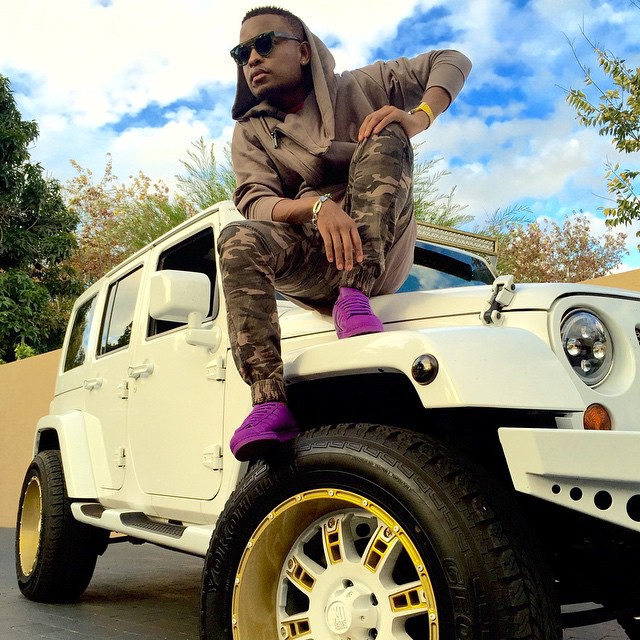This year has been a great one – to say the least – for African music, internationally. We saw the likes of Olamide, Eddy Kenzo, and Mavins have strong campaigns, elevating their popularity. The 2014 projects of Wizkid, Fuse ODG and AKA enjoyed significant traction, peaking over the summer. Sarkodie, Wande Coal, Skales and Davido (impending) are rounding out Q3 and Q4 in a strong fashion, giving fans around the globe quality projects heading into the new calendar year.
We’ve also seen African musicians reap the long overdue, and much-deserved, respect from their international counterparts. This has resulted in some of the game’s most popular artists, Fetty Wap, Drake and Meek Mill, borrowing African instrumentation to lend Nigerian-inspired singles a ‘hip-hop feel’.
Picking up speed in the race for consideration as one of Africa’s elite artists is Ntokozo Mdlui – better known to his massive following as K.O.
After nine years of developing as a member of the renowned music group Teargas – where he helped the trio amass a gold album & countless international award nominations – K.O decided to pursue a solo rap career in 2013. Since then, he has seen his career reach new heights. K.O’s morphed into a jack-of-all-trades: managing artists under his label, Cashtime Life, and penetrating global retail with a branded clothing line.
Where he’s experienced most of his solo success, though, is in the booth.
The Johannesburg native is one of the highest selling artists in South Africa, of late. His studio album, Skhanda Republic, debuted at #1 on the South Africa charts and has (to-date) surpassed the platinum sales status. His biggest single from the album, “Caracara” featuring Kid X, became the first South African music video to surpass 1 million views on YouTube.
The edgy track also helped net K.O awards victories (Best Collaboration, Best Rap Album) at the 2015 South African Music Awards – adding to a long list of co-signs that also includes MTV and BBC Radio.
We had a chance to chop it up with the industry vet, and discuss entrepreneurship, his personal success and his plans to scale South African sound beyond the confines of his country.
If you were to describe your sound to someone that isn’t familiar with K.O in a few words, how would you categorize it?
I call my sound Skhanda Music. Vernacular poetry over authentic South African hip-hop beats that are driven by indigenous traditional urban elements
What first attracted you to music?
I appreciated the fact that music has the power to capture a moment almost on a photographic level where each time you hear it, it revives those memories and feelings experienced the first time you heard it. The intrigue in that alone was enough to make me aspire to be an artist.
You’ve been on record speaking on the influence West Coast, American hip-hop (specifically Snoop Dogg and Dr. Dre) had on you growing up. What was it about these acts, and that style of music that inspired you to pursue a rap career?
A lot of us in South Africa identified with west coast rap because of mainly their fashion sense, the Chucks’ and Dickies. There’s a breed of young men in South African townships called “amaPantsula” and their whole image is bucket hats, Dickies gear and Chuck Taylors. The similarity in the style of dressing was the first point of interest. I guess I’m part of that school of youth and Snoop and Dre – being the blockbuster artists out of the West coast movement at the time – made me model myself around them.
It’s no question that your role in Teargas has helped propel you into stardom. Specifically, though, what about that experience has contributed to your growth as a solo artist, so far?
I always felt like I was the least strong member in the group when we first started, especially the way people received the other two guys on tracks or on stage. So I always felt I had to put in extra work for me to be noticed, which by default ended up being my approach in everything I did. I’m forever grateful for that.
Contrary to most rap artists, you have a degree in Public Relations. How does your educational background help you stay ahead of the competition and make your product unique, business-wise?
First thing I understood before getting into the industry was the fact that perception is everything! As a public figure you need to control people’s perception of you/your brand (whether positive or negative). So as a result I am extremely image conscious as to everything I put my name. That’s how I avoid […] drama and all the miscellaneous tools some celebrities opt for to keep themselves relevant.
Cashtime Life, your label, publishing and Entertainment Company, seems to be thriving. What motivated you to co-create this platform for yourself and other promising artists, as opposed to signing on with major labels?
I studied the greats – Jay-Z, Diddy, Master P – who created the how-to manual for all aspiring entrepreneurs and moguls. Being in full control of your work and business puts you in a position of power for you to exploit your craft and likeness however you want. I also strongly believe in my leadership skills which is why I created a platform to help others pursue their dreams, by way of investing in them. Hopefully, when I’m old and grey the machine can continue running smoothly for us to eat for generations to come.
Is that something you would advise an aspiring artists to take an actively role in doing, especially early on in their careers?
Most definitely! These days you can’t just be an artist, you need to be a businessman as well for some of the very same reasons I [spoke to].
“Caracara” is arguably your most successful single, as a solo artist, grossing over 2M YouTube views, racking up a bunch of awards and hitting number 1 on many African charts. At one point in 2015, it was the arguably the hottest track on the continent. Take us through the creative process of this hit.
My approach when creating that record was to package it in a manner that will showcase South African youth pride and authenticity to the world – hence the video concept, the dance moves and the grime in it. That record alone pretty much shaped [South African] hip-hop’s distinct identity and sound. I am honored to be part of the leading artists whose contributions to the game helps cement Africa’s spot on the world stage
What do you have planned as a follow-up to that monster single?
I believe my next record will continue on the same path as “Caracara” – not as a duplicate – to further push the envelope for me and my country. It will come out in the first quarter of 2016 as a pace-setter for my next album.
Being one of the faces of rap in your country, what needs to be done to (from a strategy POV) to see South African hip-hop sound realize its potential internationally?
We need to stay unapologetically South African in terms of how we sell ourselves to the international community and be confident in our own culture, language and sound. Another thing is for us to travel more. South Africa is pretty isolated from the rest of the world because our geographic positioning, so that means if the world can’t come to us then we need to take our craft to the world.
Are there any dope projects that you’re currently working on, that we could look forward to?
I am releasing a new street single in December which will serve as a precursor for my next project and I am also planning a full African tour – North, East, West and South – to service all those different territories. Other than that, be on the lookout for a series of hot albums and game-changing hits from other Cashtime Life artists. We are also planning to make ourselves key players in the apparel space with our upcoming CTL clothing line
Check out K.O’s latest single, “Ding Dong”, here. Follow the skhanda movement at Cashtime Life Records by following them, here.

